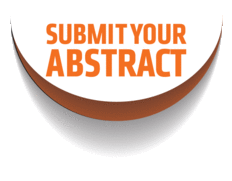18th International Conference on Dementia & Alzheimer disease
Rome, Italy

Gianna C. Riccitelli
Neuropsychology and Behavioral Neurology Research Unit, Lugano, Switzerland.
Title: TRANSCRANIAL MAGNETIC STIMULATION AND COGNITIVE REHABILITATION IN DEMENTIA: CURRENT EVIDENCE AND NEW APPROACHES
Biography
Biography: Gianna C. Riccitelli
Abstract
Today cognitive neurodegenerative diseases are a serious critical problem, with a prevalence that doubles every five years. Meanwhile, pharmacological therapies appear have no significant effect on disease course and cognitive training/rehabilitation interventions have generated temporary hope and mild proof of efficacy.Transcranial Magnetic Stimulation (TMS), one of the most popular non-invasive brain stimulation technologies, uses electrical fields generated in the brain to enhance the activity of key brain regions contributing to relevant cognitive processes.
Nevertheless, the therapeutic benefit and clinical significance of TMS remain inconclusive, due to lack of a sufficient number of double-blind, placebo-controlled, randomized clinical trials demonstrating enduring effects and positive impact on prognosis.
The field remains promising but, to make further progress, research efforts need to take into account the latest evidence of the anatomical and neurophysiological features underlying cognitive deficits in these patient populations.Moreover, as the development of in vivo biomarkers is ongoing, allowing for an early diagnosis of these neurocognitive conditions, one should consider a scenario in which TMS treatment will be personalized and made part of a cognitive rehabilitation program or used as a potential adjunct to drug therapies from the earliest stages of such diseases. Research should also integrate novel knowledge on the mechanisms and constraints promoting the impact of electrical and magnetic fields on cerebral tissues, and brain activity, and incorporate the principles of information-based neurostimulation.

